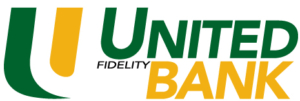Financial Literacy Awareness Month is observed nationwide by a variety of organizations. People all over the U.S. host educational events and activities throughout the month of April to promote the importance of financial literacy – especially to our nation’s youth.
In recognition of Financial Literacy Month, we would like to share some tips to help you better prepare for potential financial situations.
Safeguard Your Accounts with Multifactor Authentication
Multifactor authentication can increase the safe keeping of your financial accounts and information. The most widely used methods are challenge questions and one-time passcodes (sent via text, email, or phone call). This added layer of security does not allow anyone to fully log in to an account until after the username, password, and passcode/security answer are all entered correctly.
Avoid Late Fees with Online Bill Pay
Bills and payments can easily be lost or show up late in the mail. This can cause you to pay unnecessary late fees. To prevent this from happening, consider using online bill pay through your bank account or your mobile app. Bill Pay allows you to review your payments and make payments as quickly as the next day, so you no longer have to stress about a lost bill or payment. Start using today by logging into your UFB bank account or mobile app.
Save for Early Retirement
When entering the professional workforce, you’ll want to consider how you’ll fund your retirement. Most employers will offer retirement benefits like a 401k. However, IRA’s are also a good option to save. But how much are you supposed to save? First, determine what kind of retirement lifestyle you want. Then, just like budgeting, you’ll want to calculate the cost of that lifestyle and adjust your savings accordingly. Revisit your numbers annually to help you stay on track. If you need help, contact one of our local bankers for more information.
Saving vs. Investing as a Young Adult
Saving and investing can seem daunting when you first begin your career. However, the difference is simple… one is for short-term goals, the other is for long-term goals. For short-term savings goals – such as building an emergency fund, saving for vacation, or buying a car – you’ll want to keep your finances in an easily accessible location. This is normally a regular checking or savings account or can even be a certificate of deposit or high-yield savings account.
On the other hand, saving for long-term goals – like retirement – means investing money into a retirement account such as a 401k or an IRA. As a young adult, understanding where to put your money to start saving for your goals can set you up for a better financial future.





